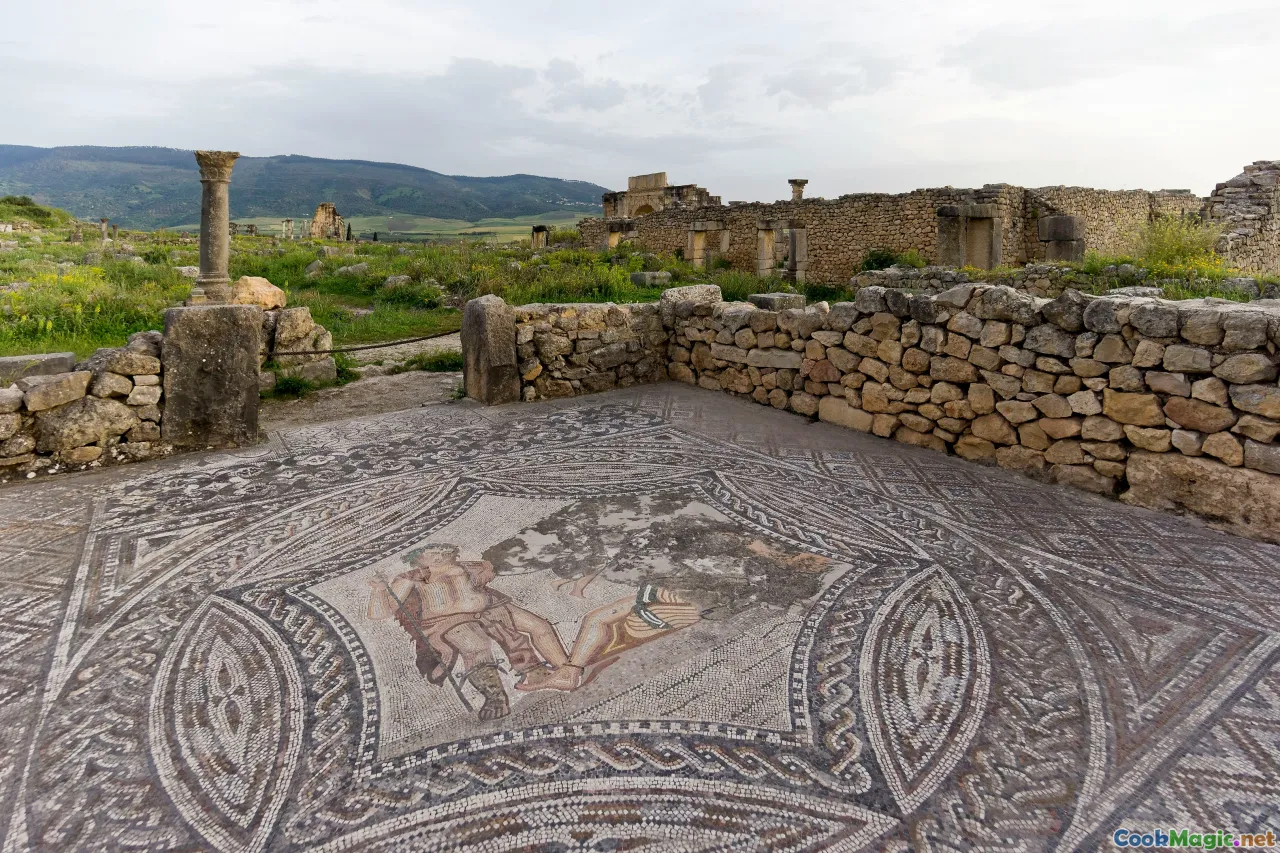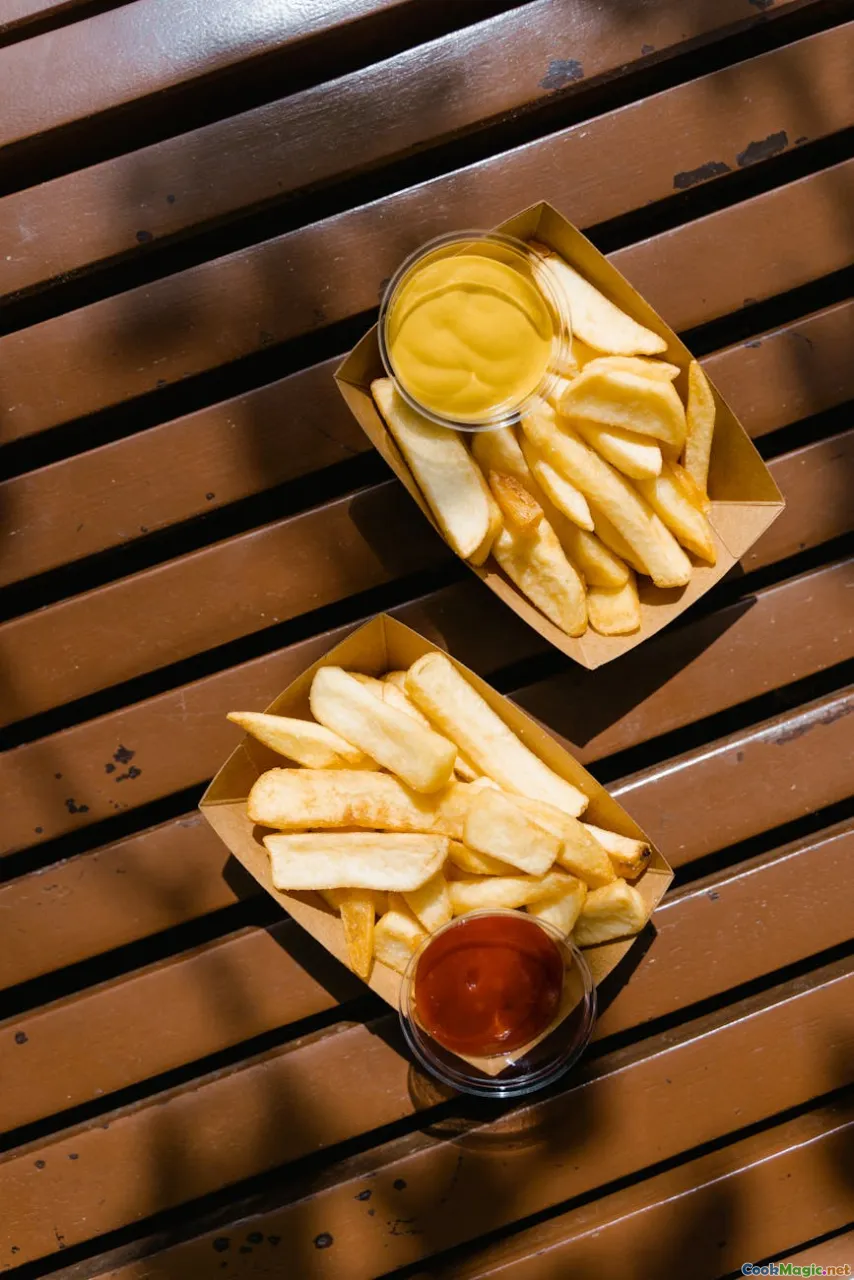Stobi Flips and Modern Macedonian Snacks
9 min read Discover the innovative snacks bridging tradition and modern flavors in Macedonian cuisine, highlighting Stobi Flips and contemporary culinary trends. September 25, 2025 06:05
Stobi Flips and Modern Macedonian Snacks
Imagine a dusting of golden crumble melting delicately on the tongue, rich aromas wafting through the air—a tapestry of flavors and textures that embody centuries of Macedonian culinary tradition. As you wander through the ancient ruins of Stobi, with its echoes of Roman grandeur and early Christian faith, you begin to realize that Macedonian cuisine isn’t just about nourishment but about storytelling—every bite a chapter, every snack a culture.
In recent years, a wave of creative culinary innovation has brought Macedonian snacks to a global stage, cementing their reputation as a dynamic fusion of history, terroir, and modern gastronomy. Among these, Stobi Flips—crispy, savory bites inspired by ancient recipes—and contemporary Macedonian snacks like ajvar-infused chips or hearty pizzas topped with local cheeses are gaining well-deserved attention. Let’s journey through the flavors, history, and passion behind these modern Macedonian delights.
The Legacy of Stobi: An Ancient Crossroads of Flavors

The archaeological site of Stobi, once a bustling Roman town situated in the heart of North Macedonia, is more than a window into history—it’s a nexus where diverse cultures and culinary influences converged. Excavated mosaics depicting grapes, the symbols of viticulture, highlight the region's long-standing tradition of wine and food craftsmanship.
But behind these relics lies a subtle yet profound influence on local gastronomy—a legacy of using ingredients like fresh herbs, grains, and a variety of preserved vegetables that still inspire modern snack creators. The ancient palate, with its blend of Mediterranean vitality and Balkan robustness, unconsciously colors contemporary Macedonian snack recipes.
Stobi Flips: A Modern Take on Ancient Flavors

Bridging millennia of culinary history, Stobi Flips are a recent innovation that pays homage to the ancient grain-based snacks enjoyed by Romans and early Macedonians. These snacks are essentially crisp, savory “bites” crafted from a mixture of locally sourced ingredients—wheat, herbs, and occasionally, shredded dried vegetables or legumes—all baked or fried to achieve an irresistibly crunchy texture.
How to Make Stobi Flips at Home
Ingredients:
- 1 cup fine bulgur or crushed toasted grains
- ½ cup shredded dried tomatoes or peppers
- 2 tablespoons finely chopped fresh herbs (parsley, mint, dill)
- ½ cup grated local cheese (feta or white cheese)
- 2 tablespoons olive oil
- Salt and pepper to taste
Instructions:
- Preheat your oven to 180°C (356°F).
- In a large bowl, mix the grains with dried vegetables, herbs, cheese, salt, and pepper.
- Drizzle with olive oil and knead until a dough-like consistency forms.
- Shape into small, flat bites or irregular nuggets.
- Bake for 20–25 minutes until golden and crispy.
- Serve warm with a dollop of tzatziki or a splash of Macedonian red wine.
These flips are not just snacks—they are a sensory portal into the terroir; earthy grains, the pungency of herbs, and the richness of local dairies combine in each bite.
An Empirical Taste Comparison: Traditional vs. Modern Macedonian Snacks

Stepping beyond recipes, consider how traditional Macedonian snacks like ‘burani’ (a fermented corn and vegetable salad) and ‘petrovo’ (homemade bread topped with cheese and spices) contrast with their modern counterparts.
While traditional options emphasize communal sharing and deep-rooted flavors—sour, hearty, with a rustic appeal—modern snacks are often designed for individual quick bites, portability, and sensory stimulation. Modern creations like ajvar-flavored chips or local cheese-filled croissants fuse Macedonian elements with global snack trends.
For example, imagine biting into a chip infused with smoky roasted red pepper (ajvar), giving an intense, peppery aroma, or tearing into a warm ‘pogača’ (flatbread) topped generously with warm feta and herbs, showcasing the love for dairy and fresh herbs.
The Role of Balkan Wines and Local Beverages

No examination of Macedonian snacks is complete without emphasizing the pairing rituals that elevate each bite. Macedonian wine—rich, aromatic, with notes of dark berries, plums, and spices—complements the savory and often spicy quality of local snacks.
Rakia, the fiery fruit brandy, is a staple at gatherings, pairing daringly with everything from cheese-filled pastries to spicy snack bites. The interplay of the spirits’ burn and the snack’s flavor complexity reflects the warm hospitality and vibrant culture of North Macedonia.
Trends and Innovations: Macedonian Snacks in the Global Arena

Today, Macedonian chefs and snack artisans are experimenting boldly. Food festivals in Skopje and Ohrid now showcase fusion bites—combining traditional recipes with international gastronomy techniques.
Artisanal producers craft mushroom-infused chips, sour cherry candies, or even plant-based snacks that redefine what Macedonian cuisine can be on the global stage. These innovations are driven by a new generation of culinary entrepreneurs, passionate about preserving heritage while pushing boundaries.
Personal Reflections: Myth, Memory, and Flavor
Imagine biting into a Stobi Flip while wandering the ancient amphitheaters—a gustatory bridge connecting your senses to ancient rituals and communal festivities. Food, in Macedonia, isn’t simply sustenance; it is identity, a living archive of history where every snack has a story.
Many locals still carry relics of these traditions—the hand-kneaded flatbreads, the fiery Rakia sipped at dusk, the burst of herbal freshness in a homemade ‘kacamak’ (cornmeal mush). These are the flavors engraved deep within the cultural fabric.
Beyond Borders: Macedonian Snacks as Symbol of Heritage and Innovation
Encouraging culinary travelers to explore Macedonian snacks isn’t just about tasting; it’s about experiencing a narrative—a vibrant, evolving culture rooted in history yet boldly embracing the future. The modern take on Stobi Flips and other snacks offers a unique lens into the country’s resilience, creativity, and love for community.
Whether snacking at a busy Ohrid street stall or savoring a handmade bite on the fragrant terraces overlooking Vardar River, these foods evoke the soul of Macedonia—a place where the past continually influences the present, and every snack is a celebration.
May your culinary explorations guide you through Macedonia’s flavorful landscapes, where each bite is a moment in time, a whisper of history, and a taste of tomorrow.









